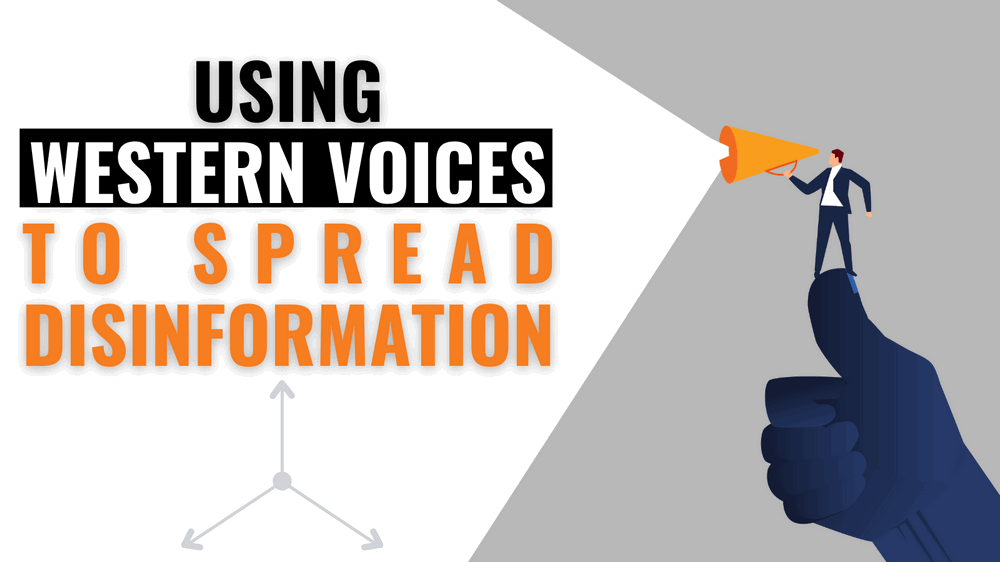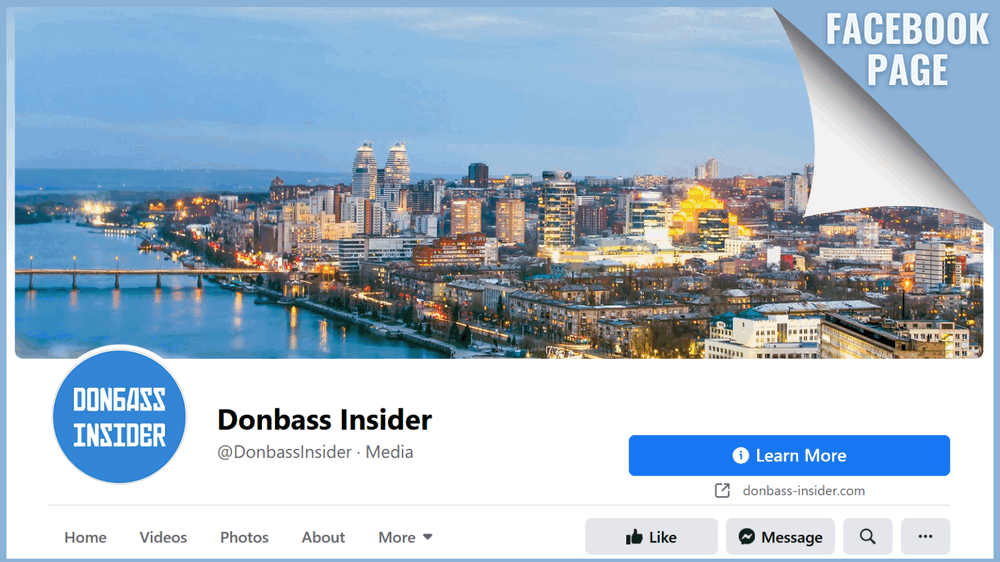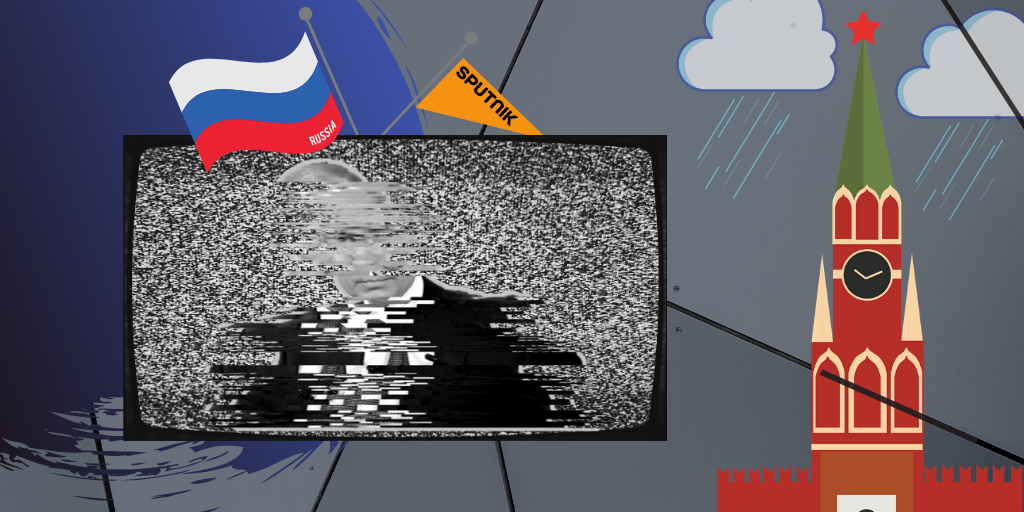Outlets Pretending to be Western
Pro-Kremlin media outlets recycle the conspiratorial musings of sympathetic Western bloggers, falsely implying they are journalists who represent the mainstream views of the West.
Previously, EUvsDisinfo has reported on a common disinformation technique: creating websites and think tanks that present themselves as objective forums for the analysis of international security issues while actually pushing pro-Kremlin narratives. In Ukraine’s separatist regions of Donbas and Luhansk, this tactic has a twist. Russian-speaking outlets translate the musings of sympathetic Western bloggers, publish the results, and then misrepresent these fringe views as the opinions of mainstream journalists in some of the largest European capitals.
Three French-language websites stand out as examples: Les Moutons enragés, Réseau International, and Agoravox. News Guard, a web-based tool that evaluates news portals based on their levels of misinformation, gives the first a low score of 20/100 and the second an abysmal score of 7.5/100. As for Agoravox, a portal original intended to be a forum for ‘citizen media’, it has become what one commentator describes as a ‘hub for conspiracy theories’.
“French Journalists”
It is possible, however, that the Russian speaking audience is not aware of how dubious these websites are as sources of professional journalism. Inosmi
and Ria Novosti, both branches of the Russian state-owned news agency Rossiya Segodnya, routinely publish articles by ‘French journalists’ writing for ‘French media’ who are actually blogging on sites such as Les Mouton enragés. After appearing in the content of an official Russian press agency, an article that originated as a conspiratorial blog was republished in other Russian media sources as a source of legitimate French journalism, known for its high editorial standards.
In particular, pro-Kremlin media often re-publish Agoravox bloggers, a few of whom fought for the separatist regions during the war in Ukraine. Philippe Khalfine was a volunteer soldier in the ‘Continental Unity brigade’ in Donetsk. In 2019, after Inosmi translated and re-published a post he wrote about Crimea, several Russian publications, including News Front, described him as ‘a French journalist from Agoravox who admires Russian Crimea’.
Another Agorabox blogger, Laurent Courtois, wrote a post describing Russian opposition figure Alexei Navalny’s poisoning as ‘the triumph of idiocracy’. At least eight articles in Russian-language publications mentioned his post after Inosmi translated it.
Some bloggers appear to be fake. EUvsDisinfo has written about “The Journalists, Who Exist only on Paper” A similar case is a ‘Patrice Bravo’, who has reposted articles that appeared in Observateur Continental, an outlet that EUDisinfo lab linked to Russian military secret services.
An Imminent Attack
A final example. On 7 July, an obscure blog called Donbas Insider published in French a story claiming that Ukrainian officials were obsessed with the idea that a Russian attack on the country was imminent. (EUvsDisinfo has previously revealed this disinformation tactic.) The post was based on a misleading interpretation of comments by Ukrainian leaders. The blogger went on to say, among other things, that only Western countries invade foreign territories, that Russia never does so, and that Ukrainian leaders are insane and belong to psychiatric wards.
Two days later, the article was translated into English and Russian and published on Inosmi. Immediately, at least sixty-eight Russian outlets, including Rossiyskaya Gazeta, published articles on this story, implicitly presenting the blogger’s views as representative of broader French opinion. Some even added Paris to the blog post’s byline – a detail that did not appear in Inosmi’s original republication – although the writer is based in Donbas.
One outlet, RTVi, noticed
that the writer is not a journalist working for a legitimate French media outlet since she holds a DNR passport and started her career working for DONi, the Donbas separatist republic’s official press agency. One Twitter user also pointed out that the pro-Kremlin press often presents the writer, a young woman from France, as representative of French opinion.
Using Western voices to spread disinformation
In Ukraine's Russian-occupied Donetsk, a small media outlet translates pro-Kremlin disinformation campaigns into French and English for Western audiences
Previously, EUvsDisinfo described how pro-Kremlin disinformation outlets present sympathetic Western bloggers as mainstream journalists. In this post, we will have a closer look at one such person who serves as a conduit for disinformation and conspiracy theories.
Of course, voicing political opinions favorable to these separatist regions is not a crime. Citizens of Western countries have the right to say or write what they believe in. But while few of these Westerners have traditional backgrounds in professional journalism, pro-Kremlin outlets do not hesitate to use their alleged journalistic credentials to spread false narratives.
"Donbas Insider"
An example is French national Christelle Néant, the founder and editor of Donbas Insider, or DI (note: "Donbas" is the transliterated Russian spelling for the name of the Donbas region in Ukraine, - Ed.). With 1,500 followers on Facebook, this outlet has a small but stable audience of anti-Western supporters and Eastern Ukraine observers. Néant says that she traveled to Donbas because of her communist and anti-imperialist convictions. She was shocked how Western media reported on the Syrian and Ukrainian conflicts and she wanted to counter them while providing humanitarian help to the local population.
Among its headlines, DI has claimed that Ukraine has turned into a dictatorship that will put opposition figures in concentration camps, that the United States has turned Ukraine into a ‘biological testing ground’, and that poisoned Russian dissident Alexei Navalny is ‘addicted to cocaine’. Such language is atypical of professional journalism and does not pass basic public scrutiny.
Russian Services
Curiously, DI’s social media accounts feature a striking twilight cityscape on the shores of the Dnieper River. But the Dnieper does not flow through the Donbas. The image shows Dnipro, a Ukrainian city some 250 kilometers to the west of Donetsk.
The outlet mostly translates Russian language articles from pro-Kremlin media outlets with an established track record of disinformation. The material is later published by outlets, linked to Russian military intelligence agencies, including Bonanza Media, UKR Leaks – a project, headed by a defector from the Ukrainian Security Services – and RIA FAN, belonging to the infamous “Troll Factory” in St. Petersburg. Those stories present narratives on subjects as varied as Syria, the Donbas, Ukraine, flight MH17, or the alleged poisoning of Russian opposition leader Alexei Navalny.
Soon after the articles appear, pro-Kremlin outlets translate the main articles, hence recycling narratives from French back into Russian, while pointing to them as evidence of ostensibly credible Western journalistic opinion. Sometimes contents of these articles are even repurposed for use on outlets more directly oriented towards Western audiences.
Take one example. A story ridiculing Navalny’s alleged poisoning appeared in Donbas Insider on 18 September. The article repeated Kremlin talking points about the affair. Four days later, the article, translated into Russian, emerged on Inosmi, a pro-Kremlin portal. Fifteen more articles then popped up on other Russian-language outlets commenting on the Inosmi piece. One such article showed up on News Front’s French-language edition describing Néant as ‘une journaliste française’ while avoiding any mention of DI.
Since the summer of 2020, DI’s collaboration with Bonanza Media has increased. Both contribute to The Hague Times, a media outlet focussing on geopolitics from a non-Western point of view (on its ‘About Us’ page, The Times describes Néant as an ‘independent French journalist’). The investigative group Bellingcat published a story in November showing how Bonanza Media has tight links with the GRU and serves its disinformation campaign on the MH17 case.
Néant holds strident opinions about the Donbas conflict. Among other things, she has accused Ukraine of being a ‘white neo-Nazi Somalia at the gates of Europe’. That is her prerogative. More seriously, however, Russian media outlets often misleadingly present her and others like her as unbiased and professional Western journalists, in order to give its disinformation fake credibility.
Further reading:
- “DNR’s” propaganda apparatus exposed. Part 1: “Russophobe, get him out of Donetsk”
- “DNR’s” propaganda apparatus exposed. Part 2: How “DNR” censored Ukraine’s leading TV channels
- First public photos of Russian-run Donetsk concentration camp leaked online
- Donetsk-born teenager recalls years of her living in occupied city
- Donetsk art center turned into concentration camp: former hostages share their memories
- Stalin-era city names to be used in occupied Donetsk, Luhansk as part of “great victory” cult
- Who is who in the Kremlin proxy “Donetsk People’s Republic”
- The rise and decline of Donbas: how the region became “the heart of Soviet Union” and why it fell to Russian hybrid war








